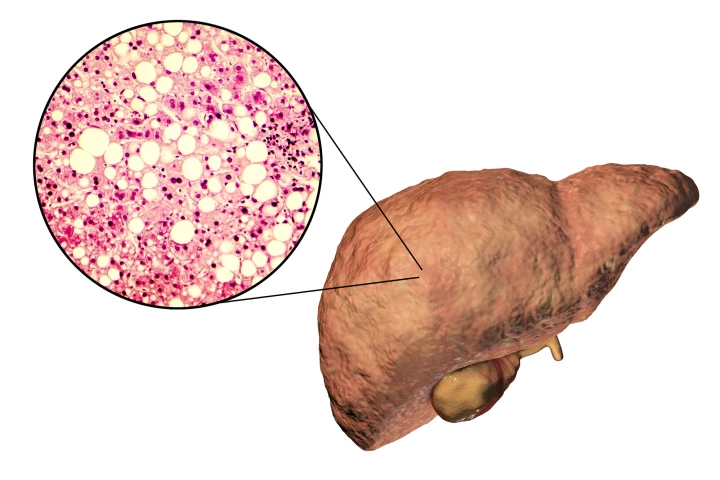Liver disease
-
A new experimental treatment could help treat end-stage liver disease – by growing tiny new livers elsewhere in the patient’s bodies. The technique, pioneered by cell therapy company LyGenesis, is due to begin human clinical trials within weeks.
-
New research has reported a link between elevated blood levels of perfluooctane sulfate (PFOS) and increased risk of liver cancer. The study is the first to directly associate exposure from this “forever chemical” to liver cancer in humans.
-
The liver can regenerate itself after taking damage, but whether that ability fades with age is unknown. A new study has found that age doesn’t slow down the liver’s regeneration, and whether you’re 20 or 80, your liver is on average just three years old.
-
Harvard scientists studying the molecular structure of cells under obesity-related stress have spotted alterations in the architecture that can be patched up, with "striking" results that restore them to healthy metabolic function.
-
Fatty liver disease is a condition linked to obesity and diabetes, and in turn often leads to further major complications. Researchers have now found a way to reverse the progression of the disease in mice, by quieting an overactive gene.
-
An impressive new study is presenting robust evidence showing the toxic proteins thought to be the cause of Alzheimer’s disease may be produced in the liver and travel through the blood before landing in the brain causing neuron damage.
-
Researchers believe they have found evidence indicating excess production of a neurotransmitter in the liver could be a causal factor in the onset of insulin resistance. The discovery points to preventative treatments for type 2 diabetes.
-
A new study has found moderate consumption of fructose and sucrose can dramatically amplify fat production in the liver. The research also suggests these sugar-induced changes to fat metabolism can continue for long periods of time.
-
Fatty liver disease is difficult to detect before symptoms appear, but a new device could offer a way forward, with the ability to non-invasively detect signs of the condition in mice with a high degree of accuracy.
-
A new study has discovered a previously unknown mechanism by which a hormone released from the gut hours after eating effectively switches off the body’s fat production processes, and found this mechanism is defective in those with fatty liver disease.
-
Liver cells are quick to regenerate, and now researchers have discovered just how persistent those cells can be. In tests in pigs with severe liver damage, functional new backup livers were found to grow in the animals’ lymph nodes.
-
New research is uncovering how non-alcoholic fatty liver disease influences the neurological conditions associated with Alzheimer’s disease. The study describes how a protein produced in the liver can travel to the brain and trigger neuroinflammation.
Load More











